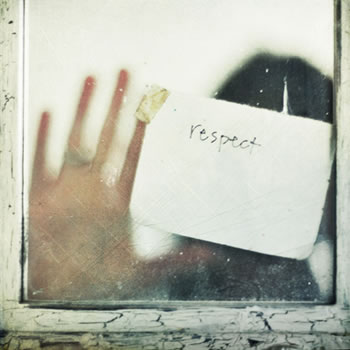A Woman's Place
Shakespeare Understood Women
Better Than Modern Men Do
 In his play Henry V, William Shakespeare wrote the character of Captain Gower as a man, an officer in the English army. In his version of the play at the Folger Theatre in Washington, D.C., director Robert Richmond makes Gower a lusty tavern wench crushing on Captain MacMorris. He also turns the soldier Bates into a nun, but still gives her the line, "Be friends, you English fools, be friends. We have French quarrels enough." Go get 'em, sister.
In his play Henry V, William Shakespeare wrote the character of Captain Gower as a man, an officer in the English army. In his version of the play at the Folger Theatre in Washington, D.C., director Robert Richmond makes Gower a lusty tavern wench crushing on Captain MacMorris. He also turns the soldier Bates into a nun, but still gives her the line, "Be friends, you English fools, be friends. We have French quarrels enough." Go get 'em, sister.
But, hey, the argument goes, Shakespeare did not write enough roles for women in the modern theater, so let's re-engender some of the roles to give actresses more Shakespearean acting opportunities. That was the stated purpose of writer and director Tom Mallan in his 2011 adaptation of Shakespeare's Prince Hal cycle as The Mistorical Hystory of Henry (I)V at WSC Avant Bard in Arlington, Va. To give his actresses more meaty roles, he set his play in an Edwardian-era brothel with the prostitutes playing the historical characters in burlesque shows.
See a pattern here? To cast more women in Shakespearean roles, directors are turning male roles into sluts, whores, and nuns. That says more about male archetypal attitudes toward women than it does any Shakespearean insights. Even scarier, this is a modern take on women in Shakespeare. Modern man's take.
Any discussion about Shakespeare and gender inevitably gets wrapped up in the fact that women were not allowed to act on the Elizabethan and Jacobean stages, so boys played young women when he wrote his plays. I hereby am decreeing that element of this discussion irrelevant. That women did not act in Shakespeare's time is a non-factor in the matter of giving women opportunities to act in his plays today.
The fact that women weren't allowed on his stages seems to have mattered little in how Shakespeare peopled his plays; more important was the acting abilities available to him within his companies. Many argue that, contextually, the prohibition on women may have factored into his tendency to have several of his heroines disguise themselves as boys. But was this a logistical matter or his chance to pull off a multilayered joke? After all, he only pulls this trick five times in 38 plays, and, except in Cymbeline, each boy playing a woman disguised as a boy is paired with another boy playing a woman remaining a woman throughout the play. Loves Labour's Lost aside, with its two major female roles and three midmajor women's parts, Shakespeare seems to have proportioned his roles for the ratio of men-to-boy actors in his company. Furthermore, when he wrote history plays, most of the characters were, by default, men (similarly, Steven Spielberg's movie Lincoln is sparse on women's roles).
We can't suppose what Shakespeare might do today, but he was a commercial dramatist first and foremost writing for a company in which he held a financial share. That company featured some of his age's best acting talents, including a pair of boys who played the likes of Viola and Olivia and may have later originated the roles of Lady Macbeth and Cleopatra. Today, Shakespeare would be writing plays or screenplays knowing he had access to Amy Adams, Jennifer Lawrence, and Kate Winslet. It was what it was then; it is what it is now.
So let's put behind us the whole "Shakespeare didn't really write for women" posit. He wrote women. More importantly, he wrote people, and because many of the people in his plays need not be gender specific, their parts need not be dramatically altered to be played by a woman.
"I feel like no matter if you're a man or a woman, how well you love a person is the same. The love is going to be the same no matter what gender you are and who you're loving." So said Shauntai Quinlon, a senior at Brooklyn Technical High School who played Othello as Othella, a lesbian, in a class project production. Her Othella was not a prostitute or nun: she was a commanding general, physically strong and Army Strong. She, like the Moor who was her predecessor, got caught up in the web of Iago—an Iago who could be spurred to his cruel plot on the same motive that drove the original Iago, being passed over for promotion and the supposition that the general had an affair with his wife. Othella's gender need not factor into the equation (and for the teenage students, it didn't).
If you set Othello in 16th century Venice, turning him into a lesbian general is a reach. You would have the same constrictions by setting Henry V historically. However, set Henry V in modern dress, and you would be passing up a golden opportunity not casting women as any or all of the four captains, but especially Gower (brand me a sexist for seeing Captain Gower as the more suitably female of the four, but my fault arises from the simple fact that I married a Captain Gower). I've known a female Fluellen, I know a female Bates (she is not a nun), I even can exaggerate a couple of female officers I've known into the part of Pistol. Oh, and my wife worked for female generals every bit the character of Henry V (and to hear her troops talking about her when she was a squadron commander, they considered her a Henry V).
No need to change a line of Shakespeare (just the pronouns). Meanwhile, you get a reading that's not only true but insightful as it allows the universality of his texts to flourish all the more. Julie Taymor discovered that for us in casting Helen Mirren as Prospera (nee Prospero) in her movie version of The Tempest. We not only get a great performance by a great actress in a great role, we get an innately woman's perspective on that role and new dynamics in her parent-child relationship with Miranda. The WSC Avant Bard—the same company that generated more Shakespearean roles for women by turning historical figures into play-acting prostitutes—a year earlier set its Richard III in the future and turned half of the lords, including Buckingham, into women. The fact that they were women not only reflected modern reality, it provided a richer psychological field for us to explore relative to the political and personal relationships between Richard and Buckingham. Think Barack Obama and Hillary Clinton.
Another approach is to reverse the cross-dressing. If boys and men could play young ladies and old nurses in Shakespeare's time, women can play young men and old pantaloons in our time. That has become common practice in amateur and provincial theaters: Too bad such a concept has yet to catch on among the big-money boys in New York, London, the Stratfords, and Washington, D.C., including the Folger (casting a woman as the boy in Henry V doesn't count). What's born out of necessity for the smaller theaters not only makes them truer to Shakespeare's intents but, in many cases, results in much better theater.
Kate Eastwood Norris made for a legendary Richard III in a 1998 touring production of what was then known as the Shenandoah Shakespeare Express, including a three-week run at the Folger. That company became the American Shakespeare Center, now occupying the Blackfriars Playhouse in Staunton, Va., where the cross-dressing tradition still thrives. Allison Glenzer has built her career playing many a man there, and her portrayal of Speed in Two Gentlemen of Verona was one of the highlights of the Blackfriars Playhouse 2012 season, as was her portrayal of Constance in King John. In the company's 2011 production of Henry V, she scored three memorable portrayals: Mistress Quickly, Alice, and—wait for it—Captain Gower (whom she played as a male English officer, not a lusty wench). I said it in my review of Mistorical Hystory and I'll repeat it here: Why cast Sara Barker as an Edwardian-era prostitute playing Hotspur when you could have cast her directly as Hotspur in any era? She would have given us a truly great reading of that great role if she had been allowed to simply be that role.
Directors—be they play, artistic, or managing—will argue that audiences have trouble getting beyond the gender when they see such cross-dressing. That's an admission that their audiences are stupid. I wish I could disagree concerning Washington, D.C., audiences, but I simply don't have the data to do so. Evidently, audiences in the provinces must be smarter. I also consider that a lazy argument, especially for a production like Henry V where the playwright, via Chorus, asks us to use our imagination—our intelligence—to envision a stage full of real kings, armies, and horses. Oh, but because you can't imagine a woman playing a soldier, we'll make her a nun; does that help?
Currently playing Cassius in Julius Caesar at ASC's Blackfriars is Sarah Fallon, and I will frankly admit that if you meet her or Glenzer in person, you will find it hard to imagine these voluptuous women playing men. Thus thought one patron who, after seeing the play, approached Fallon and remarked that, to his surprise, she played a convincing man. Fallon's long hair was done in a ponytail, and the leather uniforms she wore for the battle scenes enhanced her figure, so the actor on stage was obviously a woman. Meanwhile, other characters maintained the masculine pronoun when referencing Cassius and she was dressed like all the other male conspirators, so the character on stage was obviously a man. Ultimately, though, the role is gender neutral. In the timeless setting of the production Fallon could have played it as a woman if she chose, and, it would have worked just fine.
The fact is, when she was cast, gender didn't factor in; ASC saw the opportunity merely of coupling Fallon with René Thornton Jr. as Brutus, and we were rewarded with the finest manifestations of Brutus and Cassius conspiring in the streets of Rome and arguing in the tent near Sardis that you are likely to see anywhere, any time. That's because Fallon didn't play Cassius as anything but the Cassius that Shakespeare wrote.
Women can do that, you know. I think Shakespeare was probably aware of that when he wrote his plays, given the kind of female characters he created. Here's hoping that 21st century men catch up to him.
Eric Minton
February 13, 2013
Comment: e-mail editorial@shakespeareances.com
Start a discussion in the Bardroom



 Find additional Shakespeareances
Find additional Shakespeareances